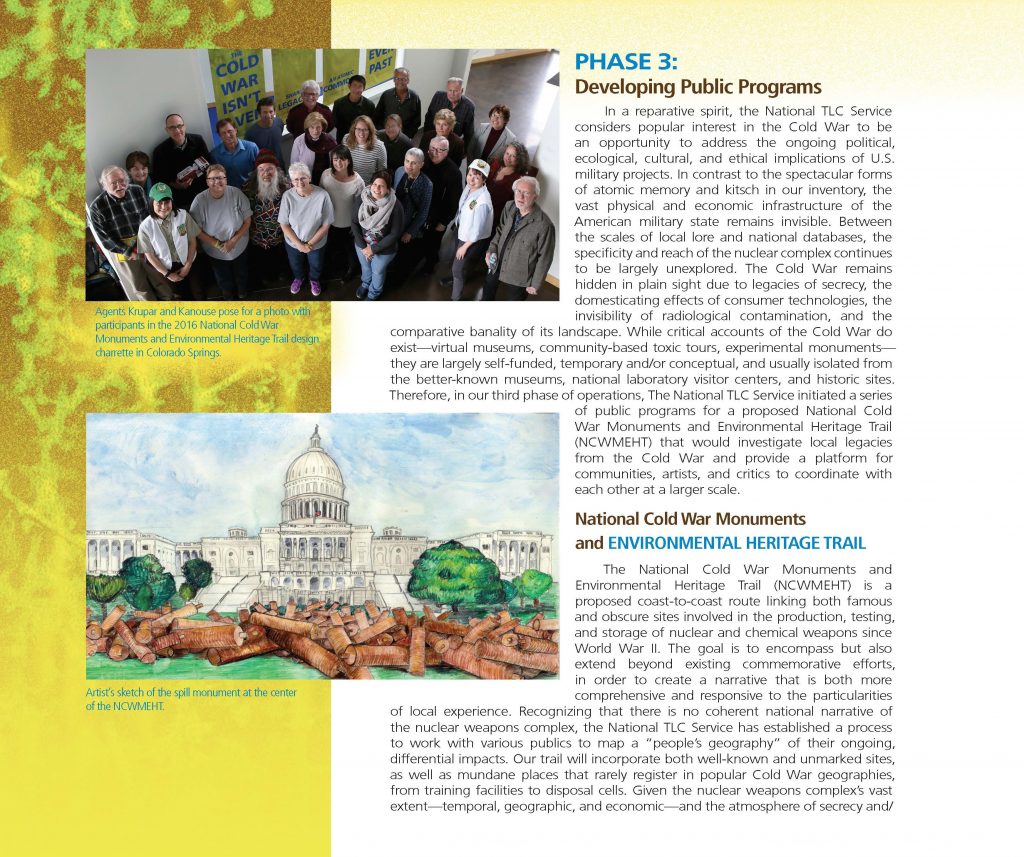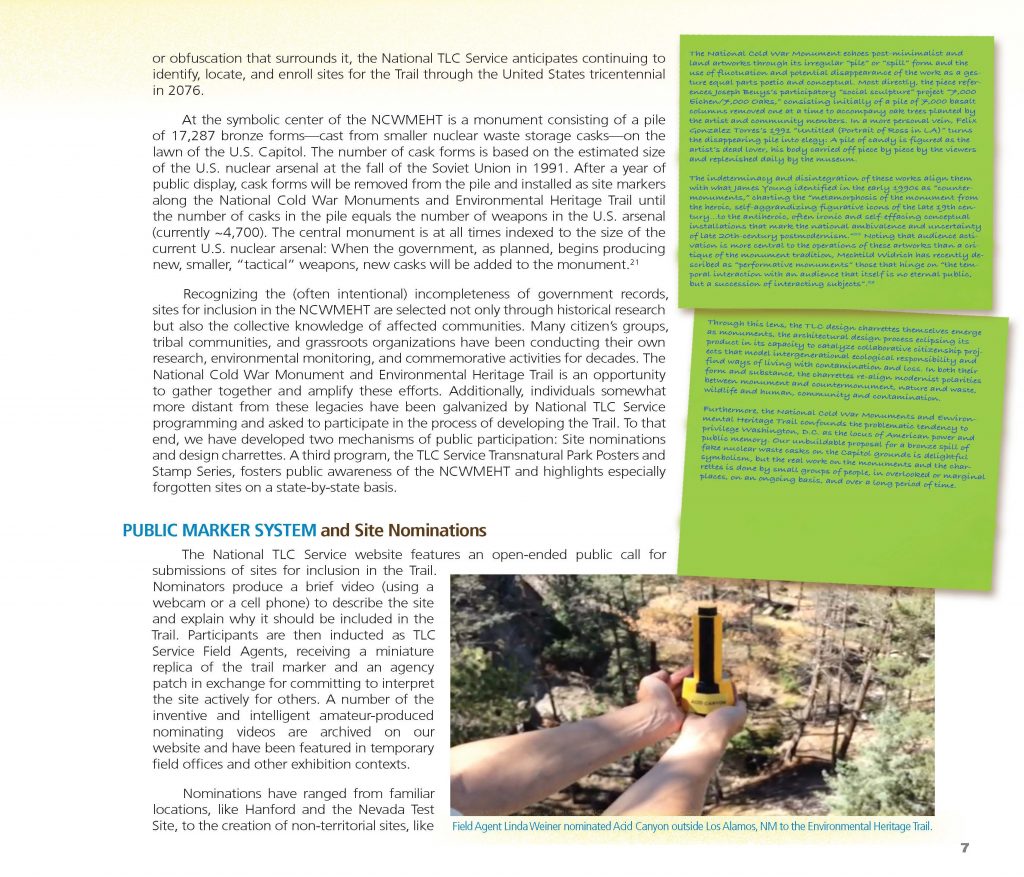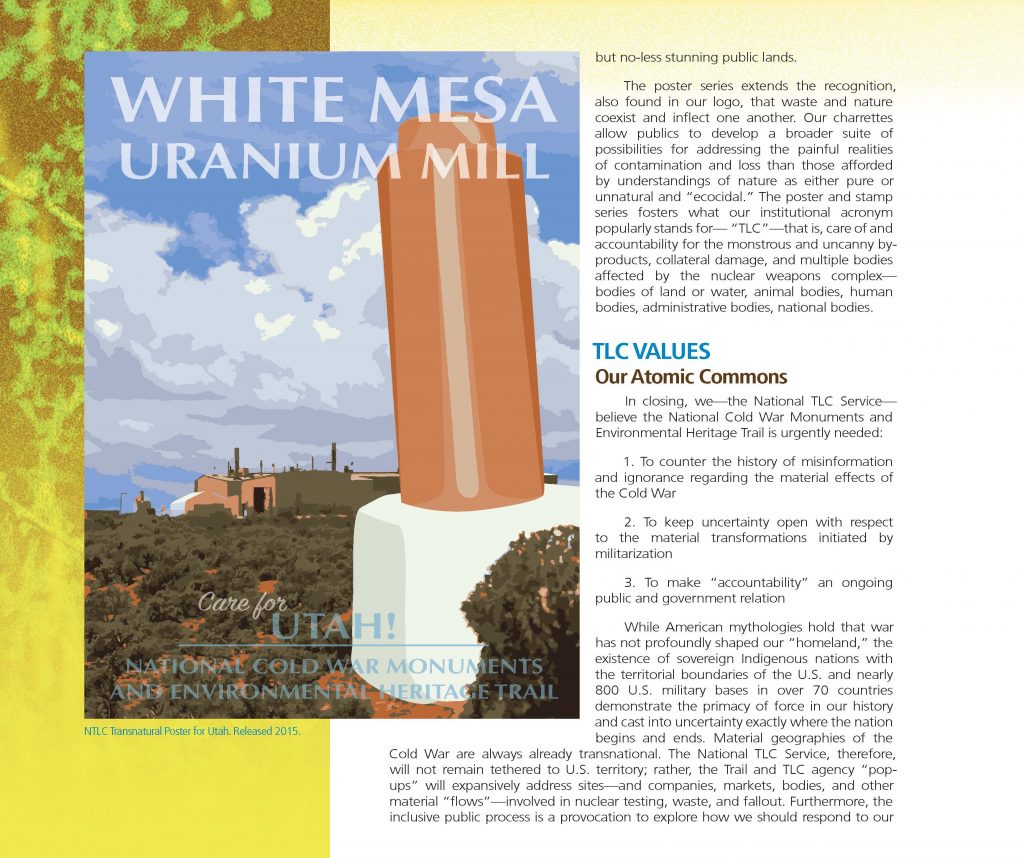Sarah Kanouse and Shiloh Krupar, “The National Toxic Land/Labor Conservation Service: 10-Year Final Report on Public Agency Organizing and Operational Responses to Cold War Legacies and the Nuclear Stockpile,” in Toxic Immanence: Decolonizing Nuclear Legacies and Futures, ed. Rodica-Livia Monnet (McGill-Queen’s University Press, 2022), 174-196
An international nuclear humanities reader featuring work by Joseph Masco, Juliet Palmer/Julie Salverson/Peter van Wyck, Bryan Taylor, Elin O’hara Slavick, Daniel O’Neill, Thomas Pringle, and more



EXCERPT
ABOUT THIS DOCUMENT
The National Toxic Land and Labor Conservation Service (“National TLC Service”) is pleased to deliver this report summarizing the history of the agency, discussing our operations within the current state of atomic commemoration, and reporting real progress in fulfilling the long-term goal of collaboratively rerouting Cold War public memory. The last decade has witnessed periodic spikes in public concern over nuclear security and a steady increase in awareness of the toxic legacies faced by Indigenous communities alongside the largest new investments in warheads weapons delivery systems since the end of the Cold War.
OPERATIONAL DISCLOSURE
In a rare display of bipartisan cooperation and as testament to the value placed in our mission, U.S. Congress maintained the National TLC Service’s annual appropriation of approximately $0 across three presidential administrations, from the agency’s founding in 2011 through fiscal year 2021. This budget, supplemented by personal funds, the labor of underpaid research assistants and understanding spouses/partners, and myriad small grants and lecture funds from several U.S. universities, permitted us to meet, and in some cases, exceed our organizational goals over the first years of operations. The improvisational skills honed through years of operating in the interstices between service provision, artistic expression, and scholarly research allowed agency personnel to work sporadically and opportunistically even through the depths of the Trump administration. The historic appointment of Deb Haaland (Laguna Pueblo) has placed a member of a uranium-affected Indigenous community at the helm of the Department of Interior. While it remains to be seen how much the inertia of statecraft might resist Haaland’s agenda, the time is right for the non-Native provisional co-directors of the National TLC Service to step aside and offer the research and conceptual framework we have developed as offerings toward intellectual and material decolonization. This will therefore be our final report as interim co-directors, as we look toward handing the reins to an unknown successor.